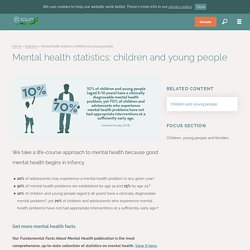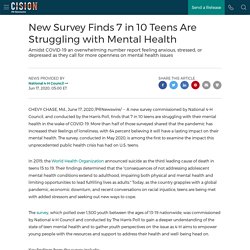

Two sources that really helped in explaining the ways that opinions on mental health can be recorded are an article that contains data titled "Part 1: 3 in 4 US Adults don’t know what gaslighting is" and a follow survey titled "Part 2: YouGovNY (Gaslighting) Complete survey".
In these sources you can see the details regarding people's knowledge about certain mental health topics. Consequently, in the first source titled "Part:1 3 in 4 US Adults don’t know what gaslighting is" the author mentions that "33% of females have been called “crazy” or “insane” by a romantic partner". This obvious cause of gaslighting is concerning because being called crazy or insane by a romantic partner is so normalized that at some point, people think it's okay to say this type of words. The second source titled "Part 2: YouGovNY (Gaslighting) Complete survey" has a more in-depth explanation of what are society's opinions on mental health; here it mentions that out of 1136 people only 19% knows what gaslighting is and the rest don't. This is troubling because even though gaslighting is one of the most common ways of psychological abuse, people aren't educated on this topic, so surveys and data like these will help spread awareness regarding mental health and gaslighting.
Mental Health. Part 2: YouGovNY (Gaslighting) Complete survey. Part 1: 3 in 4 US Adults don’t know what gaslighting is. Sobering stats on teen mental health. Mental health statistics: children and young people. We take a life-course approach to mental health because good mental health begins in infancy. 20% of adolescents may experience a mental health problem in any given year.150% of mental health problems are established by age 14 and 75% by age 24.2 10% of children and young people (aged 5-16 years) have a clinically diagnosable mental problem3, yet 70% of children and adolescents who experience mental health problems have not had appropriate interventions at a sufficiently early age.4 Get more mental health facts Our Fundamental Facts About Mental Health publication is the most comprehensive, up-to-date collection of statistics on mental health.

New Survey Finds 7 in 10 Teens Are Struggling with Mental Health. CHEVY CHASE, Md., June 17, 2020 /PRNewswire/ -- A new survey commissioned by National 4-H Council, and conducted by the Harris Poll, finds that 7 in 10 teens are struggling with their mental health in the wake of COVID-19.

More than half of those surveyed shared that the pandemic has increased their feelings of loneliness, with 64 percent believing it will have a lasting impact on their mental health. The survey, conducted in May 2020, is among the first to examine the impact this unprecedented public health crisis has had on U.S. teens. In 2019, the World Health Organization announced suicide as the third leading cause of death in teens 15 to 19. Their findings determined that the "consequences of not addressing adolescent mental health conditions extend to adulthood, impairing both physical and mental health and limiting opportunities to lead fulfilling lives as adults. " Key findings from the survey include: